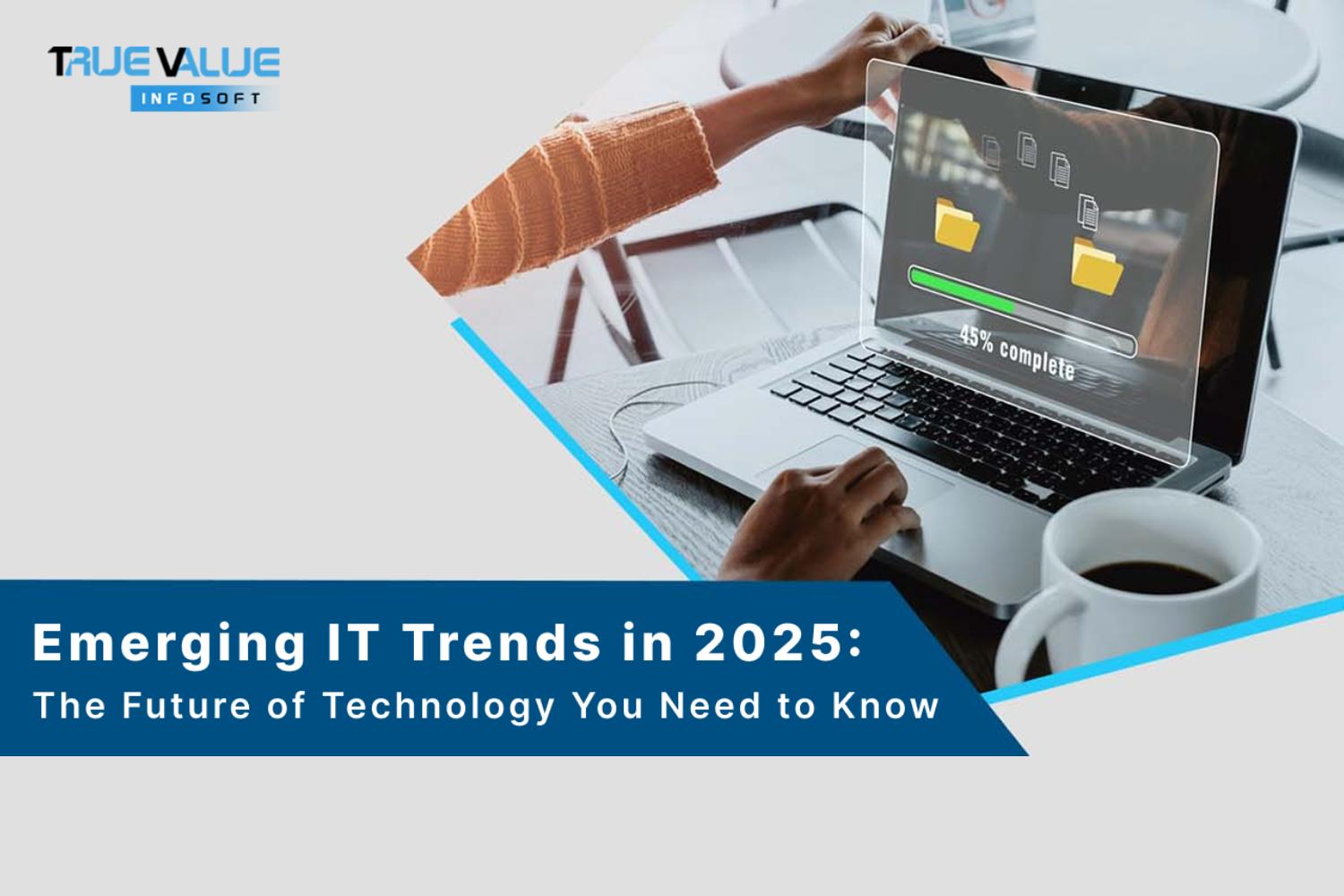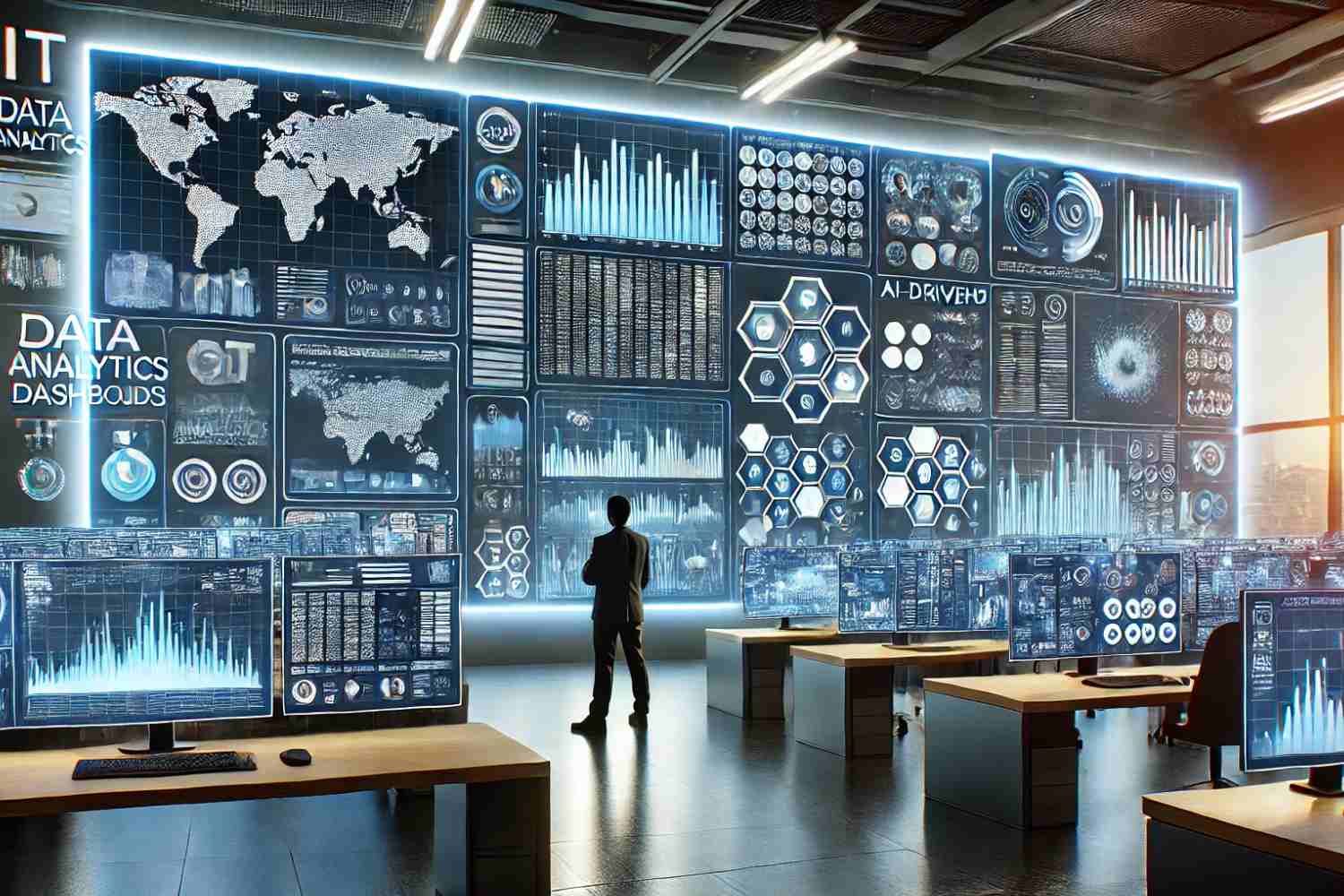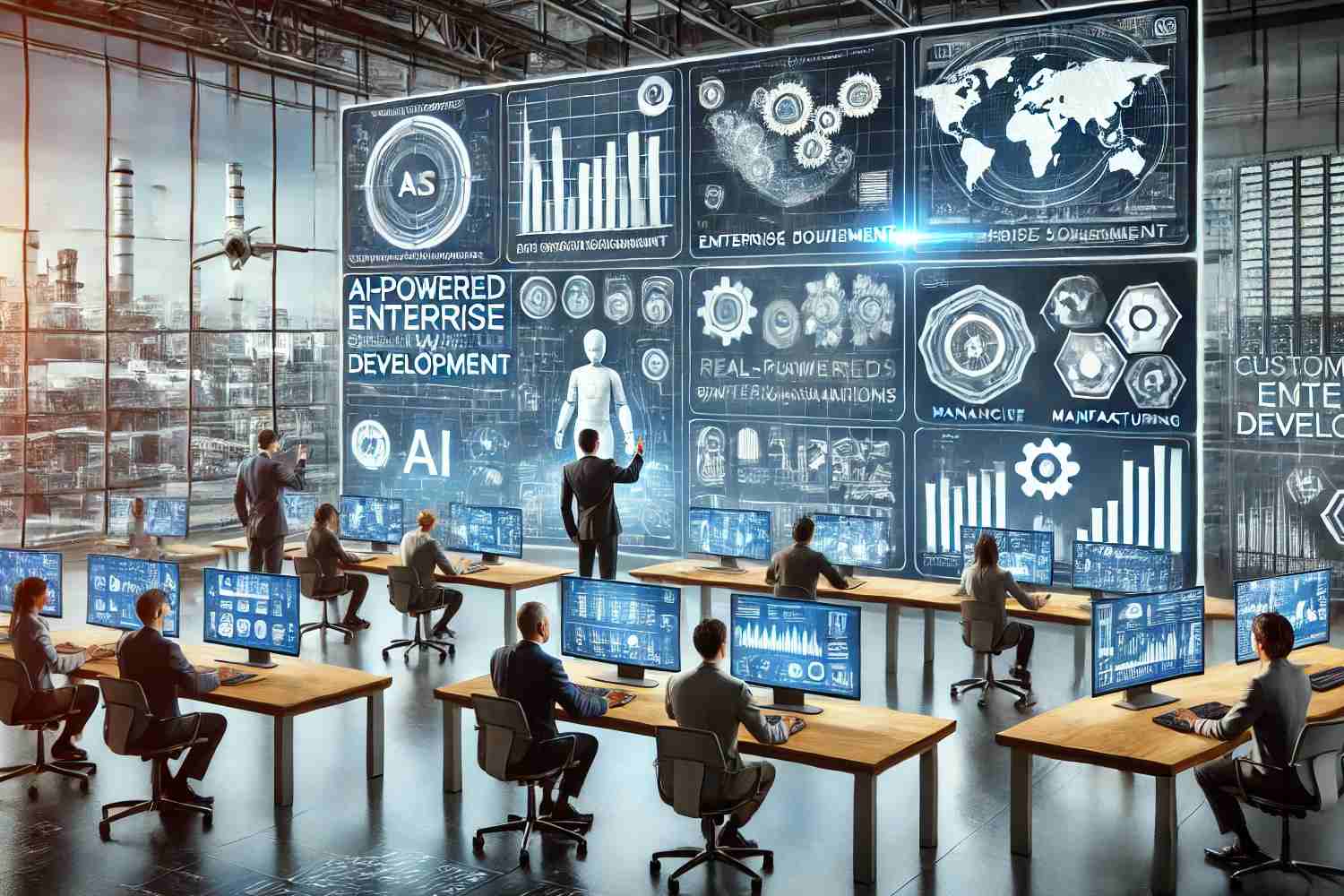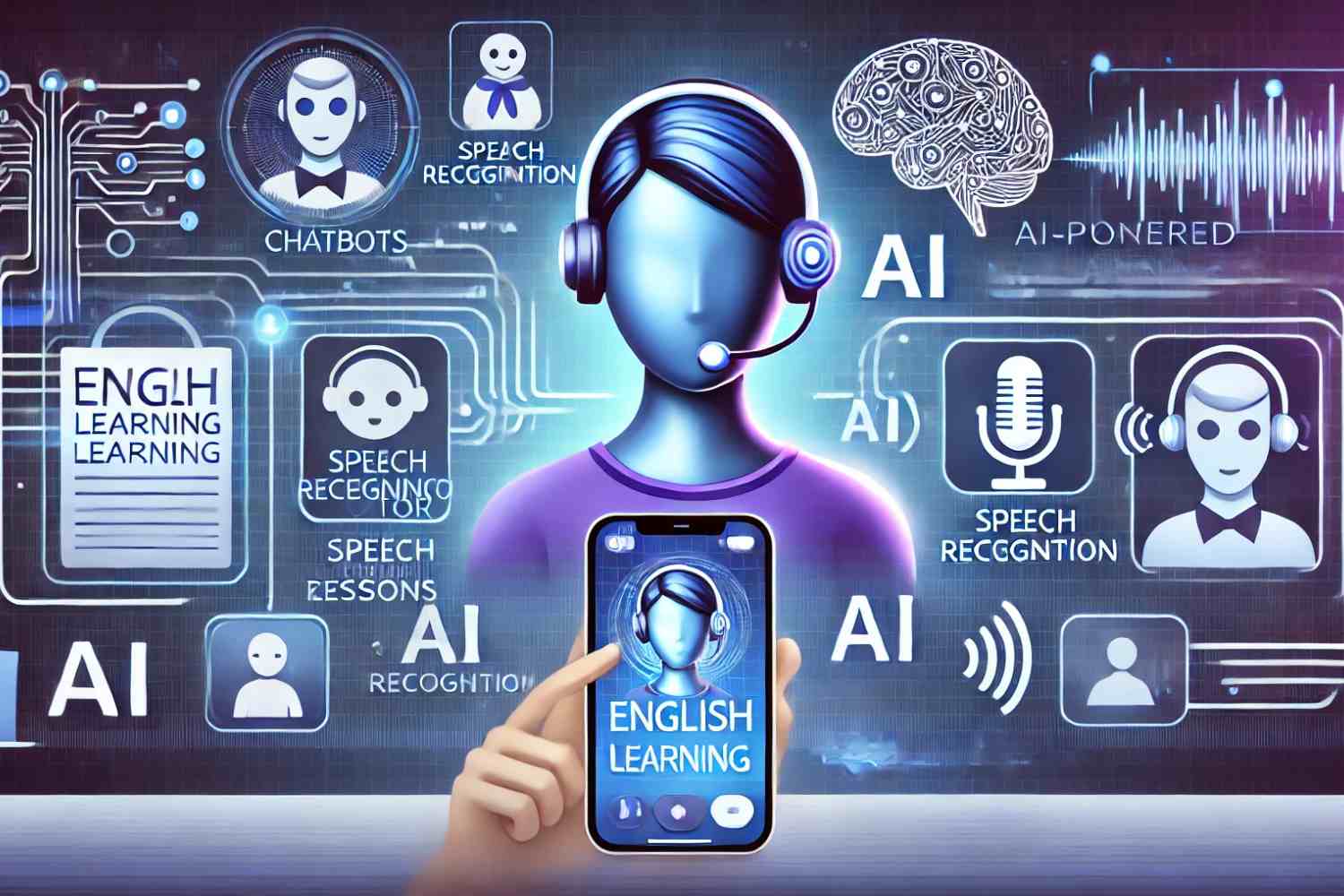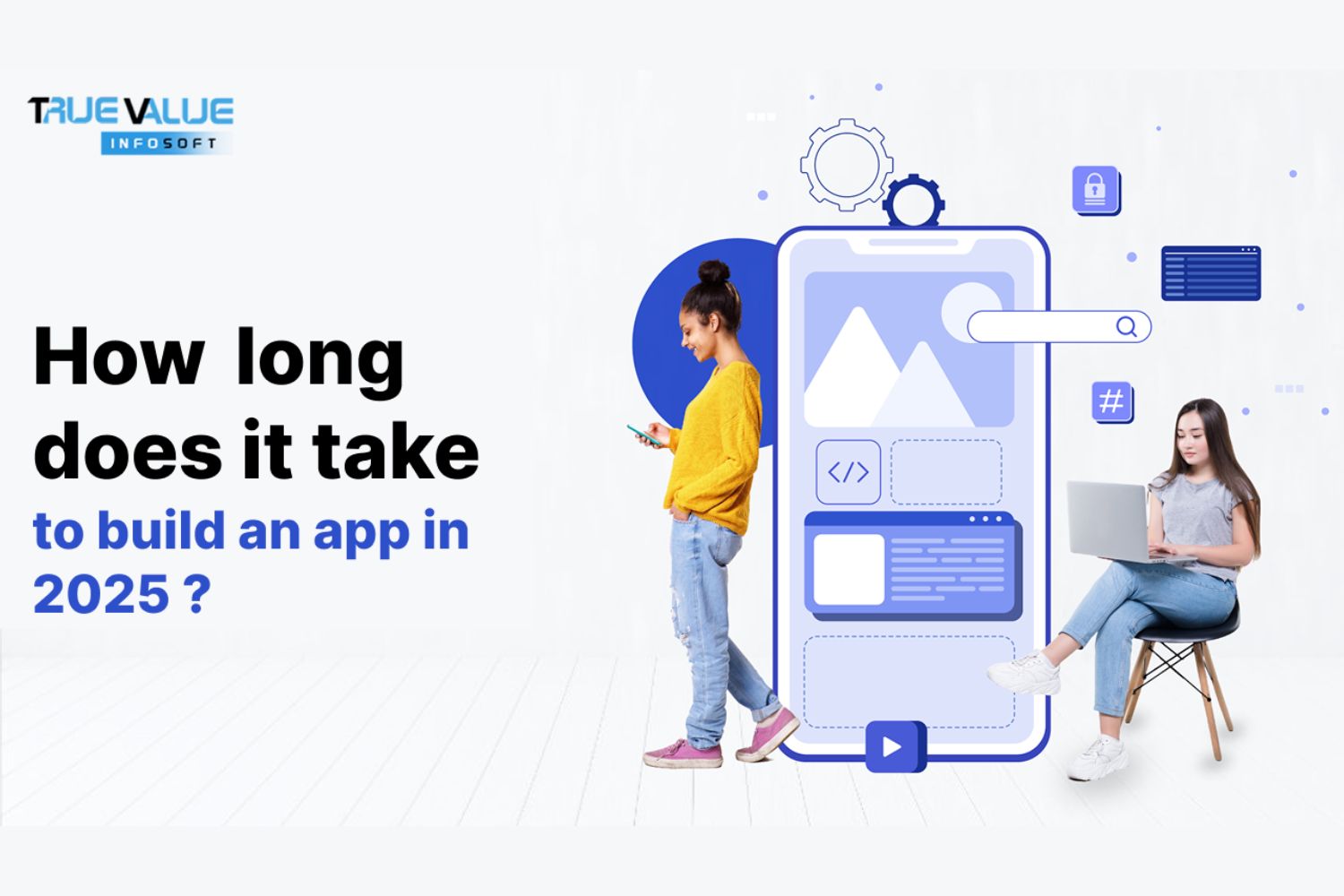Have you ever wondered how technology will shape the world in 2025? Technology is evolving at an unprecedented pace, transforming businesses, industries, and daily life. As we enter 2025, emerging IT trends are set to revolutionize how we work, communicate, and interact with digital systems. Companies like True Value Infosoft, a leading IT firm, are at the forefront of this transformation, driving innovation with cutting-edge solutions in artificial intelligence, blockchain, and cloud computing.
According to a report by Gartner, global IT spending is expected to reach $4.5 trillion in 2025, with AI and automation contributing to over 40% of enterprise processes. Additionally, 85% of businesses are predicted to adopt cloud-based solutions for improved efficiency and security. The demand for cybersecurity is also rising, with cyberattacks increasing by 30% year-over-year, emphasizing the need for advanced defense mechanisms.
In this blog, we will explore the most Key IT trends of 2025, supported by real-world examples, statistics, and expert insights. Stay ahead of the curve by understanding how these technological advancements will shape the future!
Top Emerging IT Trends in 2025

AI and Machine Learning (ML) are no longer buzzwords; they are becoming essential technologies across various industries. In 2025, AI will evolve with more sophisticated algorithms, better data analysis capabilities, and human-like interactions.
Key Developments:
- AI-driven automation in customer service, healthcare, and finance.
- Enhanced Natural Language Processing (NLP) for more realistic chatbots.
- AI-driven cybersecurity measures to counteract advanced threats.
Example: AI-based diagnostic tools in healthcare, such as IBM Watson Health, are improving patient care and predictive analytics.

Quantum computing has long been a topic of interest, and in 2025, we expect significant breakthroughs in this field. Tech giants like Google, IBM, and Microsoft are making strides in quantum supremacy, promising faster and more efficient computation.
Key Developments:
- Faster problem-solving capabilities for complex computations.
- Improved cryptographic security.
- Potential applications in pharmaceuticals, material science, and financial modeling.
Example: Google’s quantum processor, Sycamore, demonstrated quantum supremacy by solving a problem that classical computers would take thousands of years to complete.

With the increasing need for real-time processing, edge computing is gaining traction. By processing data closer to the source, edge computing reduces latency and enhances efficiency.
Key Developments:
- Integration with IoT devices for faster data processing.
- Enhanced security by minimizing data transmission.
- Adoption in industries like autonomous vehicles, smart cities, and healthcare.
Example: Smart traffic management systems use edge computing to analyze real-time data and optimize traffic flow efficiently.

5G technology is set to revolutionize connectivity, but in 2025, we may witness the early developments of 6G technology. The ultra-fast speed and low latency of 5G will continue to drive innovations in various sectors.
Key Developments:
- Expansion of 5G networks across urban and rural areas.
- Development of 6G research with even higher bandwidth.
- New applications in telemedicine, smart factories, and augmented reality (AR).
Example: Remote surgeries using 5G networks are enabling doctors to perform operations from thousands of miles away with minimal delay.

The concept of the metaverse is becoming more mainstream, with companies investing in immersive digital environments. VR and Augmented Reality (AR) are set to transform entertainment, gaming, and professional training.
Key Developments:
- More realistic and interactive VR experiences.
- Expansion of virtual workplaces and remote collaboration tools.
- Growth of the digital economy with virtual assets and NFTs.
Example: Meta (formerly Facebook) is developing Horizon Workrooms, a VR workspace allowing people to collaborate in a virtual office setting.

As technology advances, so do cyber threats. In 2025, cybersecurity will be a top priority, with AI-driven security solutions and Zero Trust architectures taking center stage.
Key Developments:
- AI-driven threat detection and response systems.
- Biometric authentication methods replacing traditional passwords.
- Increased focus on regulatory compliance and data privacy.
Example: AI-based security platforms like Darktrace use machine learning to detect and mitigate cyber threats in real time.

Blockchain technology is no longer confined to cryptocurrencies. It is being adopted for secure transactions, digital identity management, and supply chain transparency.
Key Developments:
- Decentralized finance (DeFi) platforms gaining popularity.
- Blockchain for transparent and secure supply chain tracking.
- Smart contracts automating business processes.
Example: Walmart uses blockchain to track food products from farm to store, ensuring quality and safety.

With increasing concerns about climate change, sustainable technology is becoming a priority. Companies are adopting eco-friendly practices and energy-efficient technologies.
Key Developments:
- Green data centers reducing carbon footprints.
- Energy-efficient AI models to minimize power consumption.
- Renewable energy solutions integrating with IT infrastructure.
Example: Google is using AI-powered energy management systems to optimize power consumption in data centers, reducing environmental impact.
Conclusion
The IT landscape in 2025 is poised for remarkable advancements. AI, quantum computing, blockchain, and 5G will redefine industries, while cybersecurity and sustainability will be at the forefront of technological development. Staying updated with these trends will be essential for businesses and individuals looking to thrive in the digital era.
As technology continues to evolve, embracing innovation will be key to unlocking new opportunities and driving future success. Whether it's adopting AI-driven solutions, exploring the metaverse, or investing in sustainable IT practices, the future of technology holds endless possibilities.
FAQs
AI and machine learning are expected to have the most significant impact, transforming industries with automation, predictive analytics, and intelligent decision-making.
5G will enhance connectivity, enabling faster data transfer, real-time collaboration, and the development of smart applications in industries like healthcare, manufacturing, and logistics.
No, blockchain has applications beyond cryptocurrencies, including supply chain management, secure transactions, digital identity verification, and smart contracts.
Businesses should start exploring quantum-safe encryption methods and assess potential use cases for quantum computing in their industry.
While the metaverse will enhance remote collaboration, traditional workplaces will still exist. However, hybrid work models combining physical and virtual environments will become more common.
